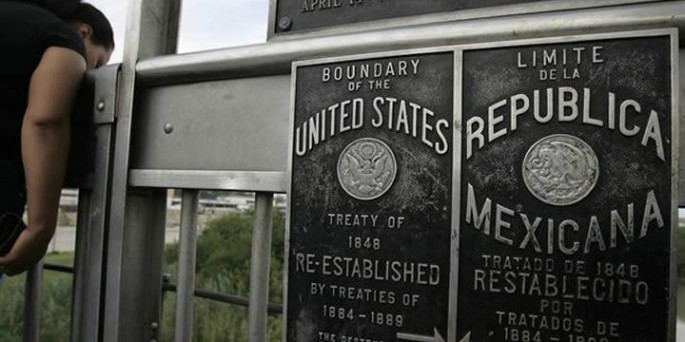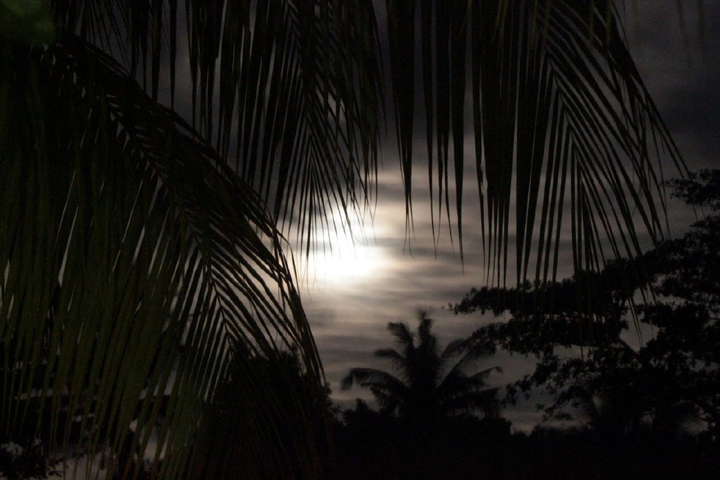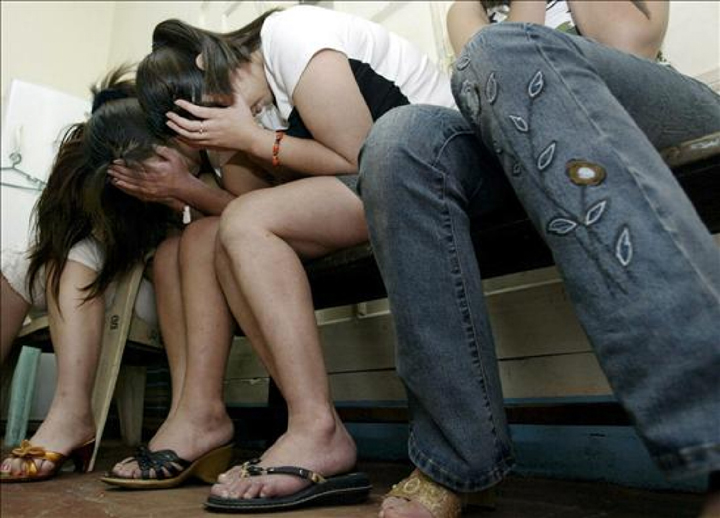
The Ecuadorean route
She arrived. Hungry, with only 2 dollars in her purse (the same “lucky $2 bill” carried by many islanders) and wearing the only decent clothes she had after crossing eight countries.
Yes, eight countries. Because Susana — let’s call her that — 32 years old and a licensed accountant, left Cuba for the United States but, starting in Ecuador and without any intention of being a tourist, had to traverse — in fear, amid violence and pain — Colombia, Panama, Costa Rica, Nicaragua, Honduras, Guatemala, and Mexico before reaching her destination, the American Dream in her mind.
She left Havana on Sept. 27, 2014, and stepped on U.S. soil on Dec. 9. Eight days later, Presidents Raúl Castro and Barack Obama announced the re-establishment of diplomatic relations between the two nations and, with it, a change in policy.
On Dec. 10, 2014, one day after arriving, Susana wrote an e-mail to her mother in Cuba. She regretted nothing. She gave advice to no one.
But her story, told in a quiet room more than 90 miles from her home, from a heart still in shock from the three most violent months in her life, has the same insecure tone of her e-mails, SMS and Facebook messages of many other Cubans who have come along that route, trusting a law that now, in a new political situation, seems to be standing on a high wire.
The first lie
It all began on Sept. 27, 2014, when she left Cuba for Ecuador with her partner and two friends, Marcos and Alejandro.
Before leaving, they had made reservations in a hotel that, according to the airline, was cheap but adequate. That was the first lie. “What we found was an awful place and we had to look for some place better, but only to sleep.”
One week later, Alejandro, who took them from Cuba, found a contact who would take them to Colombia. “We had to pay $900 each, in other words, my partner and I had to pay $1,800. I left Ecuador with $4,980 in my purse.”
“We arrived in Colombia at dawn and were taken to the home of an older man who looked like a Mafia capo. He told us not to worry, said that we were doing the right thing because Cuba was in awful shape.”
Later they learned that the man’s business was to befriend those who traveled and then tell the police where the Cubans would go and how many they were.
“That way, the guards [at highway checkpoints] would take our money and give him a percentage per person. Every time we were stopped by the police, we had to pay them $100 each.”
Near the border with Colombia, whence they would proceed to Panama on a boat, they were stopped by immigration officials. The officials boarded the bus and told them, “Carry your passports in your hands. This [interdiction] will be videotaped for television and you’ll be deported to Cuba.”
Desperate, the Cubans had to surrender $300 each.
Farewell, Colombia
In Turbo, northern Colombia, a seaside town near the border with Panama, “we spent the night in a place full of men smoking marihuana as if it were ordinary tobacco, looking like criminals and carrying guns.
“They told us that the boat that would carry us out cost $600 each, but my partner and I had only $750. It wasn’t enough and they said that it was no deal. I cried. I thought that I’d never leave that place, that I would never again see my loved ones, my son.”
It was dark when the men told them that they could go, so they ran to the boat for the three-hour trip.
“At some point, we were transferred into a larger boat where we could lie down so the coast guards couldn’t see us. When we arrived, we were told that if we didn’t pay $100 each, [the smugglers] would take us back. Luckily, we all managed to collect the money and pay it.
“On the road, we walked up a mountain that we thought we might never climb. The worst part was when, as I walked up barefoot (because my shoes slipped), I stepped on human backbones. I also found people’s clothing.”
After two and a half hours up and down the hills, they arrived at a beach known as La Miel. They were almost dehydrated, dirty and tired. “My legs were shaking and didn’t respond, but we were in Panama,” Susana said.
Third country: Panama
The boat fare to the city cost about $25, because La Miel was like an island. Some friends helped them to pay it.
“When we arrived at Puerto Obaldia, Marcos asked a friend to lend us $20 for a room, otherwise we’d sleep under the trees. I was never hungrier than on that day.
“While everyone else ate snacks, my husband cracked about 300 almonds for us. Luckily, a Panamanian girl I befriended, who worked at a bakery, gave us bread.”
Days later, a friend in the United States sent them $400, with which they paid their food debts and paid for airplane tickets to Panama City.
“When we landed, we had only $5, the price of a plate of fried rice. Because that wasn’t enough for the two of us, we bought bread, a package of hot dogs, and a bottle of Coca-Cola. Then we phoned a friend of our father’s, who sent us $100 so we could travel to his home in Changuinola, on the border with Costa Rica, a 10-hour trip.”
Outdoors
With her father’s friends, they managed to eat properly, after many days. Their breakfasts consisted of orange juice, a beef empanada, fried plantains, and coffee. “In Cuba, that’s dinner. My father’s friend lent us $500 and, after living at his home for almost one month, we left for the Costa Rican border.”
They slept on wooden benches, outdoors. “A Nicaraguan came over to me and asked me to sleep with him in a truck. I told him that I wasn’t alone and he answered that it didn’t matter, that he didn’t mind a threesome. I turned him down.”
To leave that place, hiding from the police, they resorted to a contact, to whom they paid $500 they had borrowed. “We walked through the mountains for three hours, in the dark, unable to light our way. We got lost and entered a swampy region, where we sank up to our thighs. I wouldn’t wish that on my worst enemy.”
At a dwelling near the border with Nicaragua, they waited for nightfall so they could walk at dawn through the forest. “On the highway, [smugglers] put six people in each car. In the morning, we took a bus for a 12-hour trip to the border with Honduras. Some men put the women on horseback so we could travel more quickly. Once we crossed the river, nobody bothered you.”
From there to Tegucigalpa, it was a 16-hour trip, before continuing to Guatemala. “We arrived after 24 hours, but we had to pay $700 to cross a river. The boat that carried us was overloaded — we were 11 Cubans and 32 Hondurans, with children 3 and 4 years old — so it began to take in water. At one point, we had to get out and swim.”
“Hours later, we were put aboard a truck (no roof and only metal tubes to hold on to) in which we crossed embankments and ditches until we finally arrived in Mexico. We crossed the mountains in the cold dawn to avoid the federal police, which seized me anyway.”
Mute and alone
“By then, I didn’t mind being returned to Cuba. I was tired, but to keep the policeman from knowing my nationality, I pretended I was mute. He let me go.”
Susana rejoined the group with which she traveled and hid in the mountains until dawn. At that point, they were placed on a bus and, after a two-hour trip, they were met by a pickup truck.
“We lay on the truck bed one atop the other, so we couldn’t see the road. Those who carried us did their job: traffickers in human beings. My partner had dropped out because we didn’t have any money for the two of us.”
“In the town of Tabasco, we were taken to a house where we were treated well at first but like dogs later. There was a single bed, and those who didn’t fit on it had to sleep on the floor or on a table. They woke us up at 3 a.m. and told us to leave. The police had caught another guide with 21 Cubans and they feared that they might squeal on our group.”
“Days went by and everything worsened. I had only a portion of the money needed to go on, so they started to pressure me. One night, the owner of the house and two coyotes (smugglers) proposed that I went to bed with them to pay the money due. I told them to just turn me over to Immigration and return me to Cuba; I didn’t want anything to do with them.
“The situation went no farther. The following night, they took us to Reynosa, on the U.S. border. It was 1,950 kilometers away, or about a 36-hour ride.”
She had to sit next to the driver, who “didn’t stop talking.” Twice they had to “take to the mountains,” once while crossing a desert, the second while flanking a swampy region. “While driving, the guide told us what we needed to do and I passed that information on to the other Cubans. I was like a translator. During that part of the trip, I stepped on a large thorn and could barely walk afterward.”
End of the road
Finally, they arrived at a dwelling in Mexico, where they were told to bathe and wear their best clothes so they could be presentable as they entered the U.S.
You could create a museum in that house with all the things that the refugees leave behind — cell phones, clothing, shoes — “because none of that is taken to the bridge. And you pretend not to be a Cuban.”
“The guides took us in cars up to a point and gave us 4 cents each to cross the bridge. They told us, ‘Walk and don’t pay attention to anyone.’ We had no problems because the coyotes pay the traffickers for each one of us, so we can travel on their route. That’s why we have to give them $1,500.”
“I crossed the bridge and, when I got to the U.S. side, I showed the officials my passport. I told them that I wanted to seek protection under the Cuban Adjustment Act. They took my passport, asked many questions, took all my religious belongings and gave me forms to fill. Then they let me go.”
“As I left, I kept thinking of how I could phone my family so they could pick me up. I remembered the ‘lucky 2-dollar bill’ that I had carried in my purse from Cuba. I changed the bill and phoned my father’s cousin. It took her six hours to get there and by the time she arrived I was almost faint with hunger. It was 7 p.m. and I hadn’t eaten anything since the previous day. But I had arrived.”
Susana arrived in Houston at 10 a.m. on Dec. 9, 2014. She is living there now.
Progreso Semanal/ Weekly authorizes the total or partial reproduction of the articles by our journalists, so long as source and author are identified.



